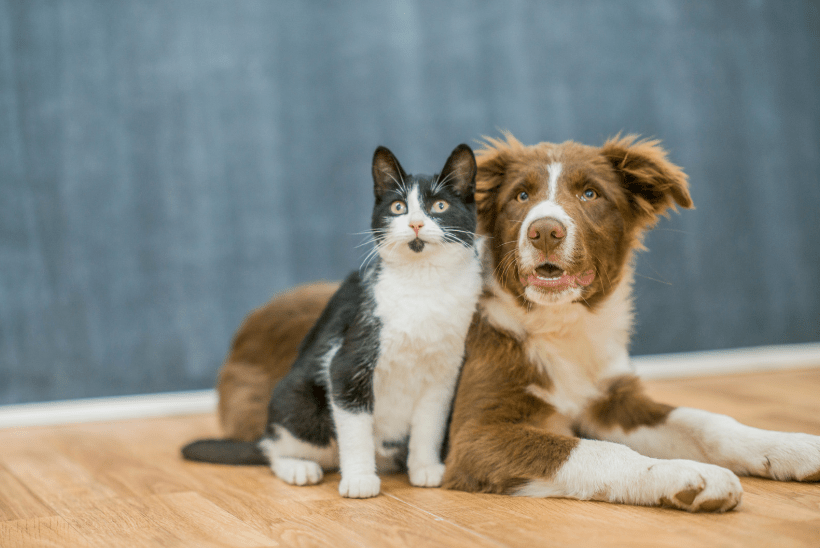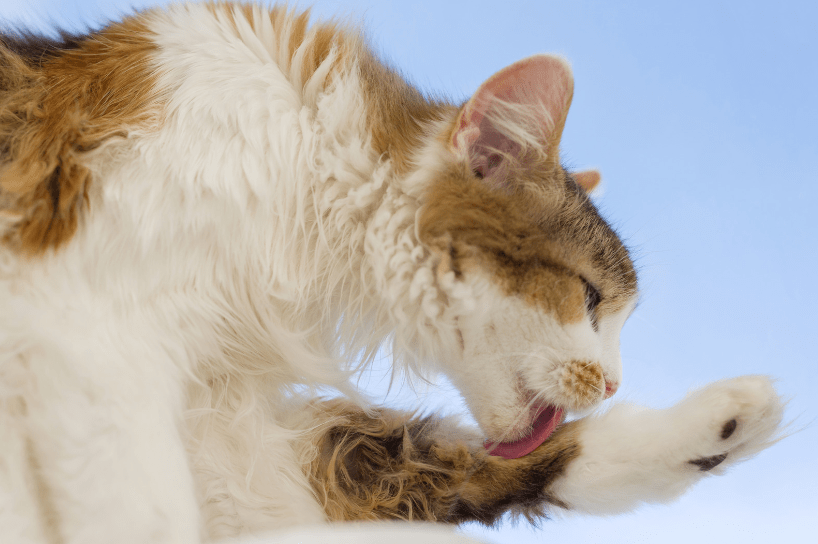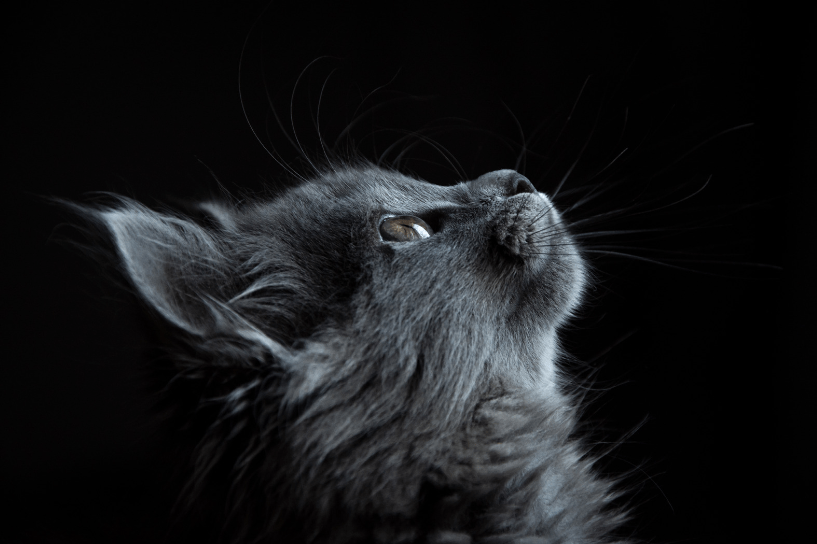No, a cat cannot get pregnant by a dog. Cats and dogs are different species and cannot interbreed.
Understanding The Genetic Differences
Cats and dogs cannot mate and get pregnant with each other because they are different species with different DNA. It is biologically impossible for a cat to get pregnant by a dog.
The Genetic Incompatibility Of Dogs And Cats
Dogs and cats, although both beloved and popular pets are two different species with distinct genetic makeups. Due to this genetic incompatibility, dogs and cats are unable to produce offspring together. Even with assistance, mating between these two species would not result in any viable or successful pregnancy. The differences in their DNA and chromosomes prevent successful fertilization and reproductive compatibility.
Why Dogs And Cats CanNot Mate
The inability of dogs and cats to mate stems from their fundamental biological differences. While dogs belong to the Canidae family, cats belong to the Felidae family. These families have distinct DNA and chromosomes that differ significantly from each other. This divergence in genetic makeup prevents successful mating and offspring production. Therefore, no matter how much a dog may try to reproduce with a cat, it is simply not possible due to these genetic dissimilarities.
Exploring The Differences In DNA and Chromosomes
To understand why dogs and cats cannot mate, it is essential to delve into the dissimilarities in their DNA and chromosomes. Dogs typically have 78 chromosomes, while cats have 38 chromosomes. The disparity in chromosome number and structure directly affects the compatibility for mating and progeny creation. Additionally, the unique DNA sequences and genetic variations specific to each species further hinder any potential reproductive union.
Furthermore, unique genetic markers and traits present in dogs and cats contribute to their distinct physical characteristics and behaviors. These markers further emphasize the fundamental differences between the two species and reinforce the fact that mating and pregnancy between dogs and cats are biologically implausible.
In conclusion, the genetic differences between dogs and cats make it impossible for them to mate and produce offspring. The dissimilarities in their DNA and chromosomes, combined with unique genetic markers and traits, provide definitive evidence that dogs and cats are separate species and cannot interbreed successfully.
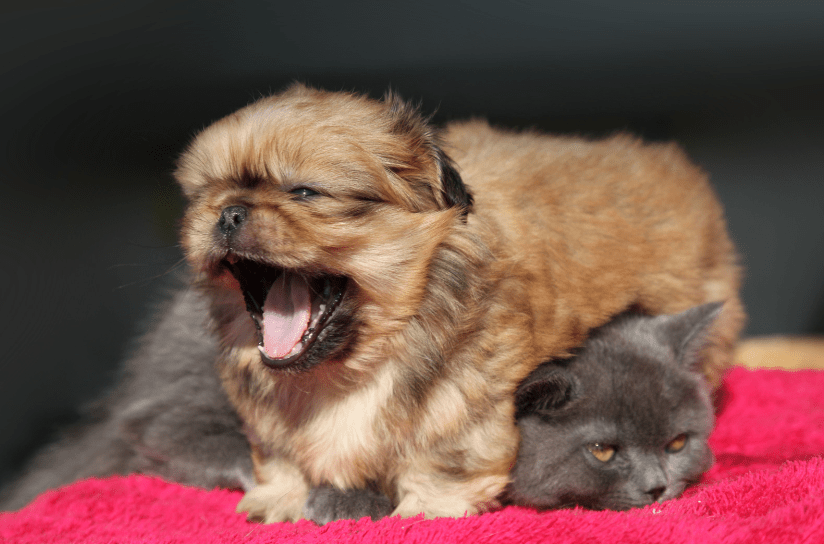
Exploring Interspecific Pregnancy
Contrary to popular belief, cats and dogs cannot genetically interbreed, making it impossible for a cat to get pregnant by a dog. Their DNA is too different to produce any offspring, and they rarely attempt to mate with each other in the first place.
Defining Interspecific Pregnancy
Interspecific pregnancy, also known as crossbreeding or hybridization, occurs when individuals from different species reproduce and produce offspring. In nature, interspecific pregnancies are extremely rare and often not successful due to genetic incompatibilities between species. While cats and dogs may engage in mating behavior, they are not genetically compatible and cannot produce offspring naturally. The genetic differences between these species prevent successful fertilization and the development of viable embryos.
Instances Of Interspecific Pregnancies In Animals
Natural cases of interspecific pregnancies are extremely rare in animals. One well-known example is the Liger, which is a hybrid cross between a male lion and a female tiger. Ligers are the largest known cats and have physical characteristics that are a combination of both parent species. However, these instances are uncommon and often occur within closely related species or with the assistance of humans through artificial insemination.
Artificially Achieving Interspecific Pregnancy
In certain cases, scientists and researchers have been able to artificially achieve interspecific pregnancies through advanced reproductive technologies. This involves the transfer of embryos from one species to the uterus of another, with the hope that the surrogate mother will be able to carry and give birth to the offspring. This method has been successful in certain animal species, such as horses and donkeys producing mules. However, it is important to note that this process requires careful genetic selection and compatibility between the species involved.
Artificially achieving interspecific pregnancy is a complex and scientifically advanced procedure that is not commonly performed. It is primarily carried out for scientific research purposes or in rare cases where the survival of a critically endangered species is at stake. Interspecific pregnancies have not been reported between cats and dogs, and it is highly unlikely that such a combination would be attempted due to the significant genetic differences between these species.
Overall, while interspecific pregnancies can occur in certain animal species through artificial means, it is important to understand that cats and dogs cannot naturally reproduce with each other due to their genetic incompatibility. Instances of interspecific pregnancies are extremely rare and often occur within closely related species or through advanced reproductive technologies.
Can a Cat Get Pregnant by a Dog: Dispelling Myths And False Claims
Contrary to popular belief, cats and dogs cannot mate and produce offspring. They are genetically different species that cannot interbreed, so a cat cannot get pregnant by a dog.
Examining Claims Of Dogs Impregnating Cats
There have been several anecdotal claims and urban legends suggesting that dogs can impregnate cats. However, these claims have no scientific basis and are biologically impossible. Dogs and cats are not genetically compatible species, even with assistance. The differences in their genetic makeup prevent any successful mating or offspring production.
Debunking Stories Of Cats Giving Birth To Dogs
Stories or rumors about cats giving birth to dogs are purely fictional and have no basis in reality. The genetic differences between cats and dogs are significant, making crossbreeding impossible. The number and traits of chromosomes in canines and felines are completely different, as confirmed by experts in veterinary science. These stories are nothing more than myths perpetuated by misunderstanding and misinformation.
Scientific Evidence Against Crossbreeding
Scientists and researchers have extensively studied the possibility of crossbreeding between cats and dogs and have found no evidence to support it. Cats and dogs belong to different species, with distinct DNA and genetic makeup. Even in controlled laboratory settings, crossbreeding attempts have yielded no viable offspring. The lack of genetic compatibility prevents successful reproduction between these two species.
It is important to rely on scientific evidence and expert knowledge when discussing topics like crossbreeding. Myths and false claims can spread easily, leading to misconceptions and confusion. Understanding the biological limitations and genetics of different species helps dispel these misunderstandings and prevents the spread of misinformation.
Understanding Species And Interbreeding
A cat cannot get pregnant by a dog because they are not genetically compatible species and cannot interbreed. Their DNA is too different for successful reproduction.
The Concept Of Species And Genetic Compatibility
The concept of species refers to a group of organisms that share similar characteristics and can produce fertile offspring when they mate. Genetic compatibility plays a crucial role in determining whether two organisms can successfully reproduce. When two species have closely related genetics, there is a higher chance of interbreeding and producing viable offspring. However, when the genetics between two species are significantly different, interbreeding becomes practically impossible.
Why Dogs And Cats Belong To Different Species
Dogs and cats belong to different species due to their distinct genetic makeup. Dogs are classified as Canis lupus familiaris, while cats are classified as Felis catus. Although both dogs and cats are mammals, they have evolved along different branches of the evolutionary tree, resulting in substantial genetic divergence. This genetic disparity, along with physical and behavioral differences, reinforces the fact that dogs and cats are indeed separate species.
The Impossibility Of Interbreeding Between Dogs And Cats
Interbreeding between dogs and cats is biologically impossible due to their substantial genetic differences. The genetic incompatibility prevents successful mating and the production of viable offspring. Dogs have a diploid chromosome number of 78, while cats have a diploid chromosome number of 38. Such a significant difference in chromosome numbers, as well as the fundamental genetic variations, makes hybridization between dogs and cats unachievable, even with technological interventions.
In addition to genetic disparities, dogs and cats also exhibit distinct reproductive behaviors and mating rituals, further reinforcing their inability to interbreed. Dogs have a seasonal reproductive cycle, while cats are polyestrous, meaning they experience multiple estrus cycles throughout the year. These differences in reproductive physiology prevent dogs and cats from synchronizing their reproductive cycles and successfully reproducing together.
It is important to understand and acknowledge the natural boundaries and limitations imposed by biological diversity. While it may be intriguing to ponder the possibilities of interbreeding between different species, the reality is that dogs and cats are fundamentally incompatible for reproduction. Each species has its unique biological characteristics and traits, contributing to the incredible diversity of life on our planet.
Exploring Other Animal Hybrids
Cats and dogs cannot mate because they do not share enough similar DNA to do so. Even if they did have sex, they could not produce any offspring.
The Concept Of Animal Hybrids
Animal hybrids refer to the offspring produced from the mating of two different species. Crossbreeding between animals from closely related species is more likely to occur compared to those from distantly related species. However, the concept of animal hybrids remains a fascinating area of study, showcasing the diversity of life on our planet.
Common Examples Of Crossbreeding In Animals
There are several well-known examples of crossbreeding in animals. One common example is the mule, which is a hybrid between a male donkey (jack) and a female horse (mare). Another example is the liger, which results from the mating of a male lion and a female tiger. These animal hybrids demonstrate the intriguing combinations that can occur when different species come together.
Here is a list of other notable animal hybrids:
- Tigon (lion and tigress)
- Zorse (zebra and horse)
- Leopon (lion and leopard)
- Cama (camel and llama)
- Savannah cat (serval and domestic cat)
The Unlikelihood Of Dog-cat Hybrids
While interspecies mating and crossbreeding can occur under certain circumstances, the likelihood of a dog and a cat producing offspring is highly unlikely. Dogs and cats are genetically distinct species with significant differences in their DNA. Their reproductive systems are not compatible, preventing successful reproduction.
Furthermore, dogs and cats have different numbers and traits of chromosomes, making it biologically impossible for a dog to impregnate a cat or vice versa. The genetic barriers and reproductive incompatibilities ensure that dog-cat hybrids do not occur naturally.
In conclusion, while animal hybrids can be found in nature and captivity, the idea of a dog-cat hybrid remains purely speculative and outside the realm of scientific possibility based on our current understanding of biology and genetics.
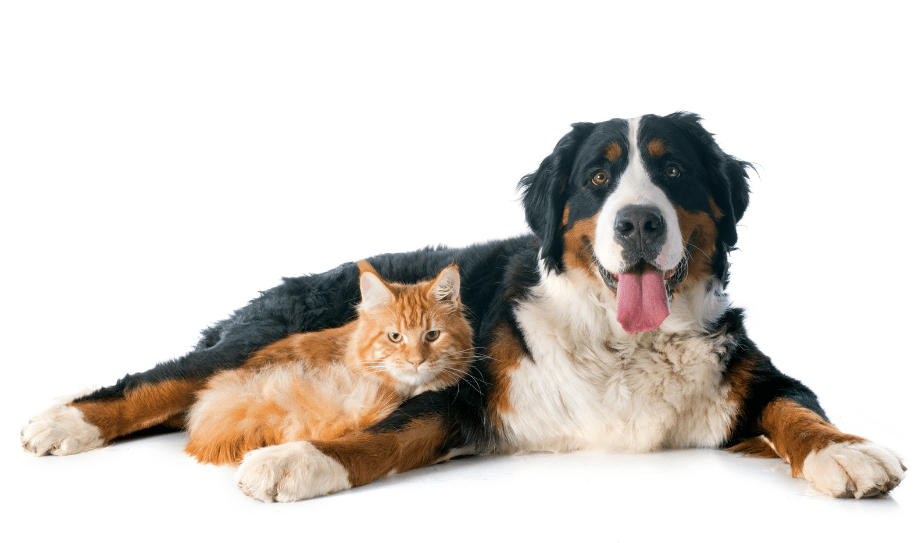
The Role Of Genetics
Cats and dogs cannot mate and produce offspring because they are different species with different DNA. Genetic incompatibility prevents the possibility of a cat getting pregnant by a dog.
How Genetics Play A Role In Reproductive Compatibility
When considering the question of whether a cat can get pregnant by a dog, genetics play a significant role in determining reproductive compatibility between different species. Genetics is the study of heredity and the variations that occur in living organisms due to the inheritance of certain traits from their ancestors. It is through genetics that we can understand the mechanisms that enable or hinder the successful reproduction of different species.
The Importance Of DNA and Chromosomes
In the context of reproductive compatibility, DNA and chromosomes play a crucial role. DNA, or deoxyribonucleic acid, is the genetic material that contains all the necessary information for an organism’s growth, development, and reproduction. Chromosomes, on the other hand, are structures within cells that contain the DNA. They are responsible for carrying and transmitting genetic information from one generation to the next.
For successful reproduction to occur between two species, their DNA and chromosomes must be compatible enough to enable the fusion of sperm and egg cells. The mating process relies on the compatibility of their genetic material to ensure the creation of viable offspring.
Genetic Reasons For The Inability To Produce Offspring
There are genetic reasons why a cat cannot get pregnant by a dog. Firstly, cats and dogs are genetically dissimilar, belonging to different species with distinct DNA structures and chromosomes. The significant genetic differences between these species make it nearly impossible for them to produce viable offspring together.
Secondly, even if the genetic differences were not a barrier, the reproductive mechanisms of cats and dogs are incompatible. The processes involved in fertilization and embryo development differ significantly between these species, further preventing the formation of offspring.
In conclusion, genetics play a vital role in determining reproductive compatibility between species. The compatibility of DNA and chromosomes, as well as the genetic similarities or dissimilarities between organisms, are crucial factors in successful reproduction. When it comes to the question of whether a cat can get pregnant by a dog, the differences in genetics make it clear that such a scenario is highly unlikely and biologically improbable.
Common Questions And Misconceptions
When it comes to the topic of cat-dog relationships, several common questions and misconceptions often arise. In this section, we will address three of the most frequently asked questions about cat and dog reproduction.
Can A Dog Get A Cat Pregnant?
One of the most common misconceptions is the belief that a dog can impregnate a cat, or vice versa. However, this is biologically impossible due to the vast genetic differences between these two species. Dogs and cats have different numbers and traits of chromosomes, which prevent successful mating and reproduction. Therefore, a dog can’t get a cat pregnant. This is a common myth that often leads to confusion among pet owners.
Can A Cat Give Birth To A Dog?
Another misconception that often arises is the idea that a cat can give birth to a dog. However, this is also scientifically impossible. As mentioned earlier, dogs and cats have different genetic compositions, which means they cannot produce offspring together. Each species has its own unique set of traits and characteristics that are passed down through generations, making cross-species reproduction impossible.
Can Interspecies Breeding Occur?
While cats and dogs cannot reproduce with each other, there have been rare instances of interspecies breeding in the animal kingdom. This phenomenon, known as interspecific pregnancy, involves the transfer of embryos from one species to the womb of another. It is a highly controlled and artificial process that does not occur naturally.
In conclusion, it is essential to understand that a dog cannot get a cat pregnant, nor can a cat give birth to a dog. These are common misconceptions that stem from the misunderstanding of genetic compatibility between different species. While interspecies breeding is possible in some rare cases, it is not a natural occurrence between cats and dogs.
Conclusion
It is biologically impossible for a cat to get pregnant by a dog. Dogs and cats belong to different species and do not share enough similar DNA to reproduce. Even if they were to mate, they would not be able to produce offspring.
So, rest assured, you don’t have to worry about your cat getting pregnant by a dog.

